Jack - Interview with Anthony Reynolds
by John Clarkson
published: 12 / 5 / 2002
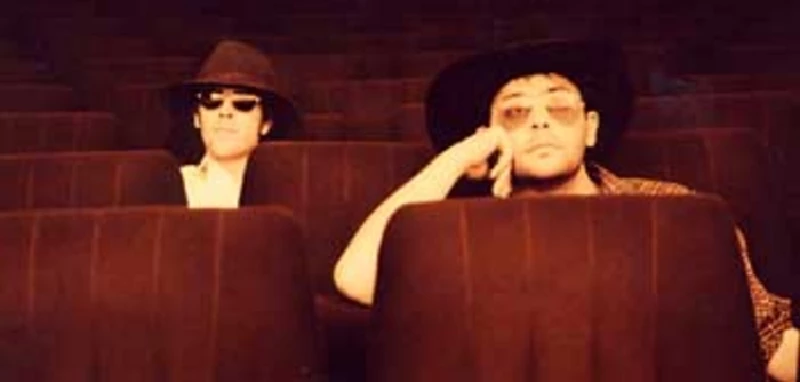
intro
Jack frontman and lyricist Anthony Reynolds talks to John Clarkson about literature, record deals and the band's first album in almost four years, 'The End of the Way It's Always Been'
Owing a debt to literature as much as to music, and drawing on the influence of the bleak, outsider prose of Charles Bukowski and John Fante as well as a shared love of the Velvet Underground, Nick Cave and Charles Aznavour, Jack was formed by vocalist and lyricist Anthony Reynolds and guitarist Matthew Scott in Cardiff in early 1992. The pair shifted to London in 1994, and expanded Jack into a septet in time for their debut gig in the capital in March 1995, after which they were immediately picked up by Too Pure Records. Noted and lauded by critics for the the tortured, dark romanticism of Reynolds' lyrics ; an innovative, atmospheric use of keyboards and strings and their bohemian, beatnik sense of ambience, the group's debut limited edition single 'Kid Stardust', which came out later that year, was made Melody Maker Single of the Week. The band followed this with an album, 'Pioneer Soundtracks', the next year, which, similarly critically acclaimed, was hailed by GQ as "the best thing of 1996" and also appeared high on various other best of the year polls. Jack went on play two tours with Suede, and a second album, 'The Jazz Age', which won the band further and increased praise, was released in 1998. Reynolds, who had never felt comfortable or relaxed in the guise of a rock star, had, however, become restless. Not wanting to fall into the trap of making the same album over and over again, and growing apart from much of the rest of the band, he put Jack on hiatus, while he developed a solo project, Jacques, which he has described as Jack's "older, slightly eccentric brother", and with whom he has released two albums, ' How to Make Love Volume 1' (1997) and 'To Stars' (1999), both of which came out on the Setanta label. A new Jacques EP entitled 'MyTwo Girlfriends' will be released on Acuarela Records soon. He also began work on a book 'These Roses Taste Likes Ashes', a collection of lyrics, poems and short stories, which, limited to 1000 copies, was published earlier this year. At the end of 2000 Reynolds renewed his collaboration with Matthew Scott . The pair began work on a third Jack album 'The End of the Way It's Always Been', which finally came out, a year after its recording finished, in May of this year on the band's new label Les Disques du Crepescules. A very different album from its predecessors, 'The End of the Way It's Always Been' has seen the departure from the line-up of guitarist Richard Adderley ; drummer Patrick Pulzer ; bassist Colin Williams and keyboardist George Wright, all of whom appeared on 'Pioneer Soundtracks' and 'The Jazz Age'. More electronica based than the two previous offerings, their parts have been taken in some places by session musicians, and in others by samplers and loops. The album also on some tracks is missing the distinctive, lush vocals of Reynolds, who, becoming "bored" of singing his own songs ", had instead "decided to write specifically for different voices". The opening title track features singer-songwriter and writer, Kirk Lake as "narrator, while 'The Emperor of New London meanwhile has a vocal appearance from the Dan Fante, the novelist and son of John Fante. In an interview, Anthony Reynolds spoke to Pennyblackmusicabout the band's history and the new album's turbulent making and recording. PB : In the interim since you released 'The Jazz Age' in 1998 and this album you have switched labels from the London based label Too Pure to a Parisian label Les Disques du Crepuscule. Why did you decide to leave Too Pure and to sign to Les Disques du Crepuscule ? AR : Too Pure and Jack couldn't agree as to how this album should be made. So we moved on and found a label who understood what we wanted to do and how we wanted to do it, this meeting being all based on chance and luck. PB : Les Disques du Crepuscule has since helped Jack to build its own studio, the Bunker, in North London. Was this one of the contributory factors that encouraged you to sign with them ? Were there any other reasons ? AR : I don't know how other groups go about it, but Jack have always just fallen into contracts. There was no point where we are sat around a battlefield mock-up in a war room, deciding which label to attack. We meet people on barges and the like. That is how we came to sign to all our labels. Four in total, as of this morning. PB : 'The End of the Way It's Always Been' was recorded between the winter of 2000 and the spring of 2001. Why has it taken so long for this material to be released ? AR : When songs are recorded and burnt onto CD thay also become a product. A record company is just that-a company, selling music. Record companies have schedules and time frames-the release of a record becomes a balancing act-based on them attempting to recoup their investment versus manufacturing and setting up a record promo-wise That is perhaps the most boring answer I have ever given in an interview, but it's interesting, however, to consider the time lag between a song being written one snowy morn' and it's triumphant release one hazy summer dawn. 'The End of the Way It's Always Been' was completed and mastered by May 2001, but some people have asked me whether it was written in the wake of September 11. I don't think such a thing could happen so quickly now-everything is set up in such a way that if we did write an album inspired by the events of September 11 2001, it wouldn't come out till September 11 2002, not the following June. PB : You have cited a wide of influences on 'The End of the Way It's Always Been' including the poets Ted Hughes and Federico Garcia Lorca, the film maker Paul Schrader and the composers Ennio Morricone and Giorgio Moroder. How did they separately influence the album ? AR : I think that when you 'get into' someone's work-a film, music, whatever, this can be 'digested' and surface in your own work in some form. You can recognize things in it that relate to people you're moved by-such as all the names mentioned above. To be specific though: Ted Hughes: I was blown away by his book; 'Crow' on finding it for myself in 1998. I have gone on to collect and appreciate more of his work since, but I tried to use the tone of language used in 'Crow'-a 'Super ugly language'-in our song 'The End of the Way It's Always Been'. Lorca is a general influence in terms of the vaguest definitions of 'Romantic' and 'Sentimental'. With Paul Schrader, on tracks like 'Emperor of New London', I tried to reflect the extreme almost caricatured tone of his screenplays from films like 'Blue Collar' and 'Taxi Driver'. Morricone has always been a constant influence-especially for Matthew in his composing of the music and in terms of the atmosphere and the landscapes Ennio's music traditionally evoke-Moroder comes in via the wonderfully crude electronic aspect. PB : The album is very much a departure in direction for Jack. George Wright, Colin Williams, Patrick Pulzer and Richard Adderley who all appeared on both 'Pioneer Soundtracks' and 'The Jazz Age' have now all left the band. Why did they decide to part from the group ? AR : Only Richard actively 'left' the group. I didn't want to work within the traditional 'combo' set up anymore. I felt we'd taken it as far as we could without repeating ourselves. Also, for a group to really work 'on stage' and in the studio, I think that group must also exist together outside of these contexts. Add to this the fact that we were growing apart from each other socially, The group was not successful financially-people were getting older, looking for a way to earn a living...all these factors came together. It didn't feel right to continue. Things change. I think everyone is still involved in music in some way. George has a website: www.fiddlesticks.com PB : Only yourself and Matthew Scott now remain from the first line-up of the group. Does the band currently have any other core members, or is it otherwise made up of session musicians ? AR : From day one, Jack was about the songs that Matthew and I wrote. If you read up on our history, you will see that Jack has had many personnel changes. Matthew and I have always been the only true core members of the group. PB : Rather than featuring your voice on all of the tracks, the album uses various guest vocalists and narrators on some of the songs. Why did you decide to do this ? AR : I wanted to try writing words while knowing that I wouldn't have to vocalise them and see if this affected the words themselves. It did. I had done some writing for other people between this and the last Jack album and had found it liberating. I also wanted to surprise myself by bringing unknown quantities into the songs-not just different personalities but how we could use the actual material. For instance I recorded Dan Fante in his living room in LA on a camcorder. Back in London we sampled each of his phrases separately from the video tape and placed them in the track, as if we'd sampled a movie. We did a similar thing with Kirk's voice and it was more interesting for me than sitting in front of a microphone and singing. Hopefully it'll be a little more interesting for other people too. I also don't think that some of the words on these tracks would sound believable coming out of my mouth. PB : You have said in the past that you would much rather be "an ex-pop star like David Sylvian" rather than a pop star. What did you mean by that ? By putting guests on the album, were you in way attempting to fulfil that wish ? AR : I do have an increasing wish to 'disappear....in what way, I'm not sure. I don't like attention from strangers and am basically shy and unsociable. Yet at the same time I think I've got something worth saying in a way that I want the world to hear. So I guess being a "ex-pop star" would fit this neurotic state of mind perfectly. But as I've also said, I do think I've bypassed the "pop star' stage and gone straight to the 'ex' bit. PB : How did Dan Fante become involved with the album ? AR : I had the opportunity to meet and interview Dan in 2000. We were co-hosting a night at Border's bookshop in honour of his father's work. We met in Soho and got on. He was unlike anyone else I knew or know....he had been through a lot and this was evident in his face, demeanour and voice. I wanted to harness some of this and so wrote 'Emperor of New London' with his voice in mind. I then went to LA from New York with the express intention of recording him...and he had forgotten I was coming! But we pulled it off and how we did is another story... PB : Why did you decide to feature Kirk Lane on the title song? AR : Again, there was something about Kirk's experience and personality that I can hear in his voice-I wanted to put this on record. PB : One of the great joys of any Jack album is that it always provides a suggested reading list. You name checked John Fante's 'Wine of Youth, Vladimir Nabokov's 'Lolita' and Rupert Brooke's 'The Collected Poems' on 'The Jazz Age'. This time around you have recommended Keith Sagar's 'The Laughter of Foxes' .What is that book about ? Why have you recommended it ? AR : If anyone hunts out that book and reads it they will hopefully see the relevance it has to the record. The 'further reading' started as a light-hearted thing and I was surprised it had never been done so explicitly before but I was amazed at the vitriolic reaction it has caused in some journalists. Some people have a real problem with it, but I'll continue to do it because I like to share the things that that excite me. The records are only part of the story. PB : You have recently as well published your own book 'These Roses Taste Like Ashes' to coincide with the new CD. What does that feature ? How can fans get hold of copies ? AR : That book is a round-up of the most important (to me) lyrics from all the records I've put out since 1995. There are also two stories and some poems. It's available, like most vanity publishing, from our website: www.thebandjack.com PB : Now that you have published a book, do you see yourself as principally a musician or a writer, or something else ? I've always seen myself as a writer of words with an amateur interest in music and sound. PB : Jack will be touring France and Spain in late May and June. Does the band have any other plans for the near future ? AR : Any plans we have reveal themselves to us as we go along........ PB :Thank you
Picture Gallery:-
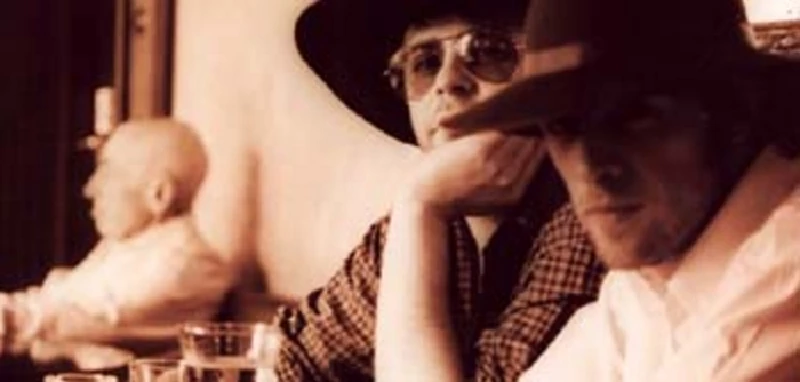
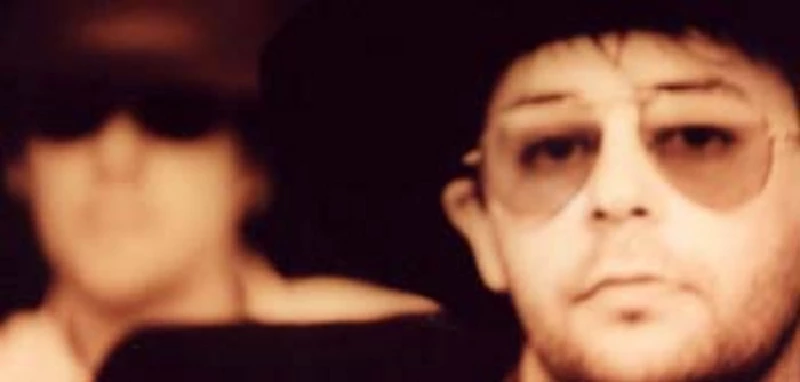
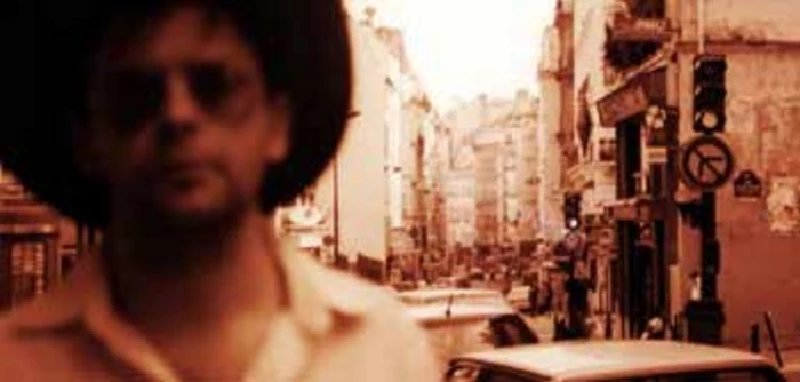
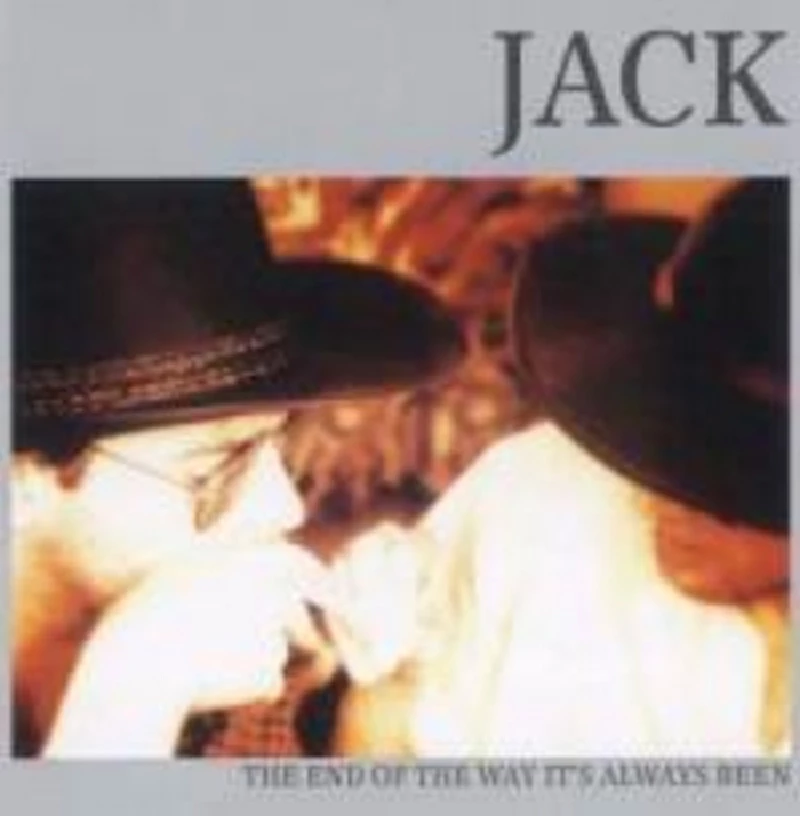
reviews |
|
Pioneer Soundtracks (2007) |
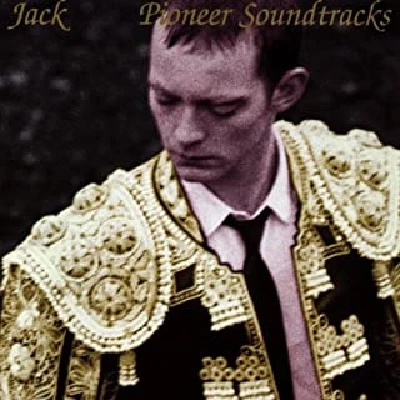
|
| Excellent double CD remastering with extra tracks of Jack's classic 1996 debut album, 'Pioneer Soundtracks' |
| End Of The Way Its Always Been (2002) |
most viewed articles
current edition
Carl Ewens - David Bowie 1964 to 1982 On Track: Every Album, Every SongArmory Show - Interview with Richard Jobson
John McKay - Interview
Colin Blunstone - Thalia Hall, Chicago, 16/7/2025
Billie Eilish - O2 Arena, London, 10/7/2025
Bathers - Photoscapes 1
Visor Fest - Valencia, Spain, 26/9/2025...27/9/2025
Loft - Interview
Sir Tim Rice - Interview
Robert Forster - Interview
previous editions
Manic Street Preachers - (Gig of a Lifetime) Millennium Stadium, Cardiff, December 1999Heavenly - P.U.N.K. Girl EP
Beautiful South - Ten Songs That Made Me Love...
Oasis - Oasis, Earl's Court, London, 1995
Peter Perrett - In Dreams Begin Responsibilities Interview Part One
Prolapse - Interview
Coldplay - Wembley Arena. London, 16/8/2022
Boomtown Rats - Ten Songs That Made Me Love....
Trudie Myerscough-Harris - Interview
Pixies - Ten Songs That Made Me Love...
most viewed reviews
current edition
Davey Woodward - Mumbo in the JumboSick Man of Europe - The Sick Man of Europe
Lucy Spraggan - Other Sides of the Moon
Phew, Erika Kobayashi,, Dieter Moebius - Radium Girls
Amy Macdonald - Is This What You've Been Waiting For?
Bush - I Beat Loneliness
Suzanne Vega - Flying With Angels
Alice Cooper - The Revenge of Alice Cooper
Blueboy - 2
Cynthia Erivo - I Forgive You
related articles |
|
Cream: Profile (2015 |
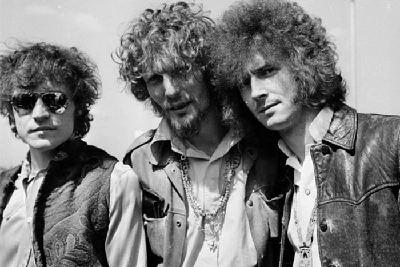
|
| Lisa Torem reflects on the short but prolific career of 60's supergroup Cream, who have just ahd most of their work released in a new vinyl box set |
Pennyblackmusic Regular Contributors
Adrian Janes
Amanda J. Window
Andrew Twambley
Anthony Dhanendran
Benjamin Howarth
Cila Warncke
Daniel Cressey
Darren Aston
Dastardly
Dave Goodwin
Denzil Watson
Dominic B. Simpson
Eoghan Lyng
Fiona Hutchings
Harry Sherriff
Helen Tipping
Jamie Rowland
John Clarkson
Julie Cruickshank
Kimberly Bright
Lisa Torem
Maarten Schiethart